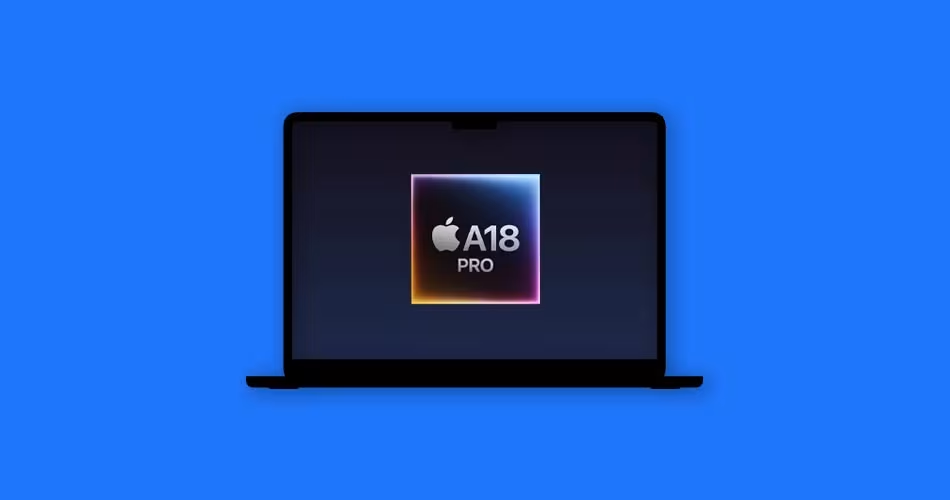Apple may launch a new affordable MacBook powered by the A18 Pro iPhone chip in 2026, aiming for a sub-$999 price to attract budget-conscious users.
A New Era for MacBooks: iPhone Chip Inside, Budget Price Outside
In a bold shift, Apple is reportedly working on a cheaper MacBook powered not by an M-series chip, but by the A18 Pro chip, the same processor found in the iPhone 16 Pro. Analyst Ming-Chi Kuo says Apple is gearing up to enter production as early as late 2025, with a mass-market push of 5 to 7 million units expected in 2026.
Why Apple’s Budget MacBook Could Be a Game-Changer
For years, the MacBook Air at $999 has been Apple’s most affordable laptop. But if Kuo’s predictions hold true, we could be seeing a new entry-level MacBook that’s even easier on the wallet, perhaps a first-ever sub-$999 Mac laptop.
What to Expect:
- Processor: A18 Pro chip from iPhone 16 Pro
- Design: Same 13-inch display size as MacBook Air
- Colors: Possible fun options like pink, yellow, and silver
- Performance:
- Single-core: ~3500 (just behind the M4)
- Multi-core: ~8780 (comparable to the M1)
- Good enough for everyday tasks like browsing, video streaming, and light productivity
While the A18 Pro might not match the multi-core speed of the M-series chips, it still delivers respectable performance, especially for users not running heavy-duty pro apps. The chip’s efficiency also means longer battery life and cooler operation, which could make this model ideal for students and casual users.
Related: macOS Tahoe 26 Beta 2 Released: Download Now on Your Mac
Apple’s Budget Strategy: All Eyes on Price
Apple has never dropped below the $999 mark for any MacBook, so this rumored model could break new ground. The production scale Kuo mentions hints at aggressive pricing, possibly in the $700–$899 range to appeal to a larger market.
The trade-off? Likely just the chip. With similar screen size and Apple’s hallmark design, the new MacBook could retain much of the Air’s charm, just with a phone chip instead of a Mac chip.
Why the A18-Powered MacBook Makes Sense
- Smart chip reuse: Leverages Apple’s existing A18 chip development
- Cost savings: Lower BOM (bill of materials) = more aggressive pricing
- Consumer appeal: Many everyday users won’t feel the performance gap
With most apps still heavily dependent on single-core performance, the A18 Pro stands strong against older M1 machines, which are still widely in use and praised for their efficiency.
Final Thoughts
The idea of an A18 Pro-powered MacBook may sound surprising, but Apple is clearly eyeing a wider audience. If priced right, this cheaper MacBook could disrupt the entry-level laptop market and attract first-time Apple users, especially those seeking a sleek machine without the premium price.






